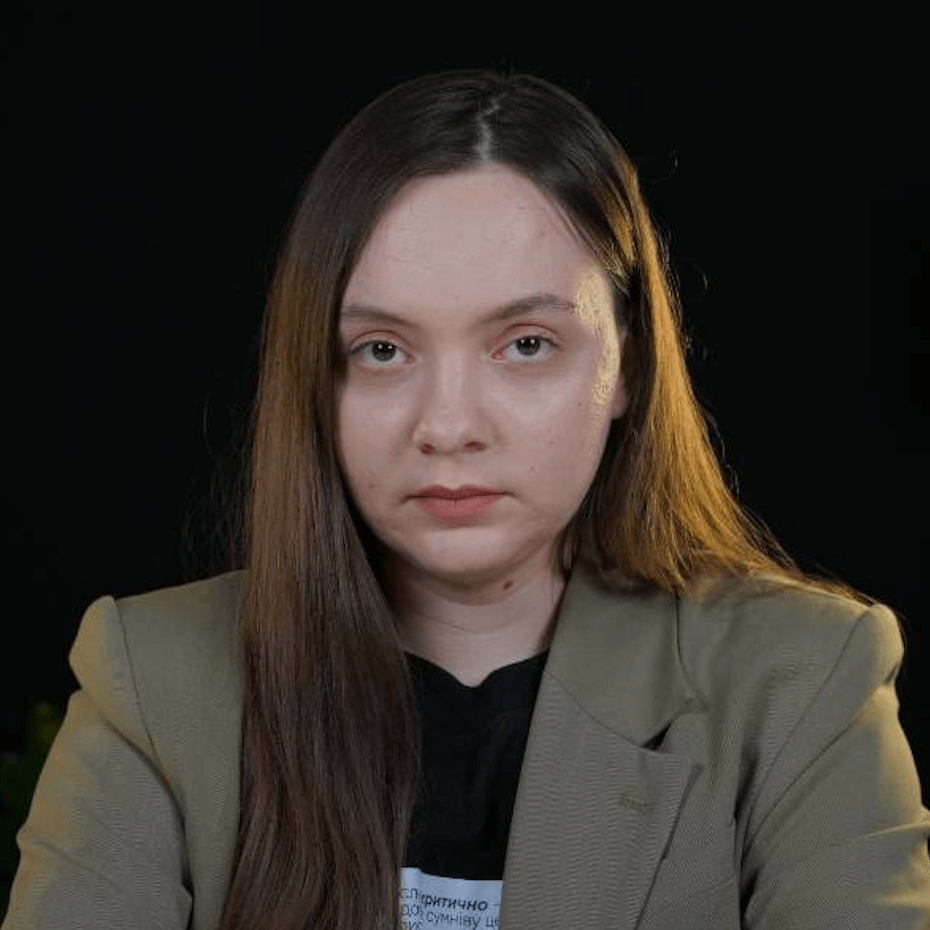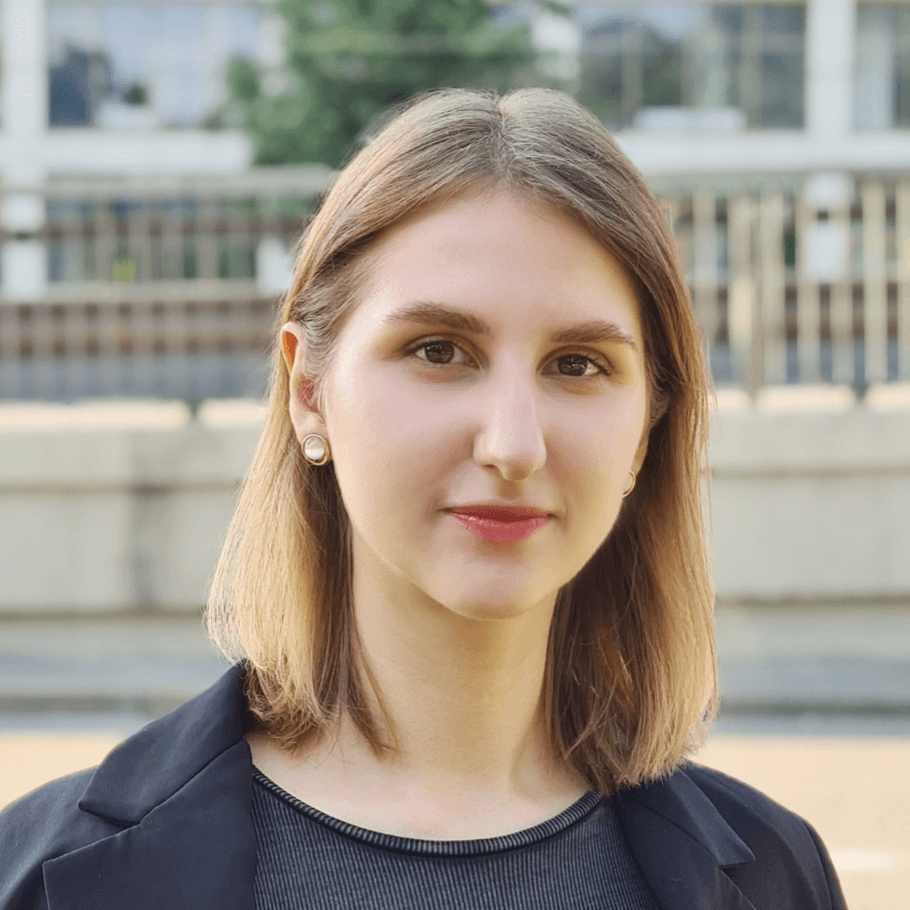On January 11, “ZN.UA” published the article “War and Schemes in Medicine”, in which it accuses the NHSU of corruption and lack of idea about the present state of affairs in the medical system. The main argument of the author of the article, Alla Kotliar, is that the number of medical personnel, according to the data of the NHSU, increased during the full-scale invasion, although officials have repeatedly stated that there is a shortage of medical personnel due to the departure of doctors abroad. And the head of the NHSU is accused of alleged corruption because she worked in Chernivtsi, and a case of embezzlement of state funds was recorded in one of the private clinics there.
VoxCheck checked the main theses from the article, which can affect the audience’s trust in the National Health Service of Ukraine, and, thus — worsen the perception of the medical reform among Ukrainians.
In this article, we are not trying to discredit the “ZN.UA” publication, the author of the material, or to claim systematic violations of journalistic standards by the media. On the contrary, “ZN.UA” is among the top 9 most high-quality mass media in Ukraine, according to the “White List” of the Institute of Mass Information, published in September 2022. And in December 2022, IMI again testified that “ZN.UA” did not reveal any violations regarding balance, credibility, and separation of facts from comments.
At the same time, the material we analyze in this article contains significant manipulations regarding the state of the healthcare system in Ukraine. The “ZN.UA” article also gained publicity in other major Ukrainian media, such as UP.Life (the material was updated by adding data from Vasyl Piven, head of the Analytical Department of the NHSU) or Obozrevatel. As a result, this may negatively impact Ukrainians’ perception of the medical reform, particularly regarding the principles of functioning of the National Health Service of Ukraine.
Thesis 1: In Ukraine, despite the war, the number of doctors and medical personnel increased, they not only did not leave Ukraine but, on the contrary, arrived here
Referring to the NHSU, “ZN.UA” provides the following statistics: “during this period [from January 1 to November 1] the number of specialist doctors in the country as a whole… has increased by 4 per cent (+4467), first aid doctors – by 4.2 per cent (+1080), and average medical personnel – by 5.7 per cent (+8961)”, — and compares it with the data announced at the beginning of June 2022 by the Minister of Health Viktor Liashko: “There were about 143,000 doctors and 261,000 mid-level medical personnel in Ukraine before the war. Now, according to our registers, 2,273 medical workers, including doctors and nurses, have left Ukraine, not counting medical attendants”. From this, the author of the article concludes that: “medical personnel from January 1 to November 1, 2022, not only did not leave Ukraine, but, on the contrary, arrived here.”
VoxCheck verification:
The author of the article confused the total number of medical workers with the number of those registered in the electronic healthcare system. Since there were (and still are), fewer registered doctors than doctors in general, the increase in the number of registered doctors does not contradict the fact that a certain number of doctors went abroad.
In June 2022, Minister of Health Viktor Liashko reported that (1) before the full-scale war, 143,000 doctors and 261,000 mid-level medical personnel worked in Ukraine – that is, a total of 404,000 medical workers, and (2) that more than two thousand medical workers (0.5% of the total number) left Ukraine. This is 0.5% of the total number of doctors in Ukraine. At the same time, 288,000 medical workers (71% of the total number) were registered in the electronic healthcare system by the beginning of 2022. As of January 1, 2023, the number of registered medical workers exceeded 325 thousand people. As Vasyl Piven, head of the Analytical Department of the NHSU, explains, this happened due to the registration of medical institutions in the Electronic Health Care System (EHCS), since during the registration of a new medical institution, the medical staff of the institution is also registered. In 2022, 2,474 medical institutions and individual entrepreneurs joined the EHCS. In particular, from October to December 2022, more than one and a half thousand medical facilities were registered in the EHCS for the first time.
On February 16, 2022, the Cabinet of Ministers issued the Resolution “Some issues of economic activity in medical practice”. According to the document, all institutions that have received a license for medical practice must register in the electronic health care system. Previously, the registration requirement applied only to those institutions that worked under a contract with the NHSU. Healthcare facilities must make basic medical records in the electronic healthcare system. In this way, all medical information about the patient is stored in one electronic medical card. However, the registration of a medical institution in the EHCS does not require the conclusion of a contract with the National Health Service of Ukraine or participation in the Medical Guarantee Program.
For example, at the end of October 2022, the Cabinet of Ministers approved reorganizing the National Cancer Institute in Ukraine. Reorganization enables the facility to enter into contracts under the Medical Guarantee Program with the NHSU. This means that the National Cancer Institute will receive government funding for every patient who receives certain services. The reorganization also provides for the institution’s autonomy. In this case, the institution must register personnel in the eHealth system, which increases the number of medical workers in a single electronic healthcare system.
Analyzing the data from NHSU, the author of “ZN.UA” added several unjustified comments of her own, which may distort the readers’ perception of the material. In particular, the phrase “the NHSU responded to our request with a long datasheet, apparently expecting that we would drown in the information and fail to understand the bureaucracy and casuistry of indicators” immediately shifts the emphasis, saying that NHSU is trying to confuse journalists and is hiding some data. This can immediately create a biased attitude towards NHSU in the reader and incline the audience more to the author’s position.
Another phrase: “…we invited specialists who, in their spare time, helped us understand…”, also unjustifiably appeals to readers’ sympathy for the work done. Although in fact, the editor makes the decision about which topic to include in the work and what volume of work is necessary for its coverage at its own discretion and taking into account its own capabilities.
“ZN.UA” does not position the article as a column or an interview, where the author’s comments and personal opinions are quite possible and appropriate. The publication classifies this material as an article that should provide the audience with objective and unbiased information. Such lyrical digressions make the material subjective and convey the author’s position instead of facts.
Thesis 2: The Program of medical guarantees of the NHSU is formed incorrectly due to a lack of data, which gives hospitals room for manipulation
Quote from the “ZN.UA” material: “…either Minister of Health Viktor Lyashko is lying, declaring that there is currently a shortage of doctors and medical personnel in Ukraine due to their departure abroad, or the National Health Service of Ukraine is telling lies. <…> the agency [NHSU] does not have information, does not know how many doctors there actually are in the country, and therefore cannot correctly draft the Program of Medical Guarantees for the Population of Ukraine. This, in turn, means that contracts are awarded to hospitals that deliberately fail to meet the procurement conditions. That is, medical institutions, claiming that they have the necessary medical personnel to provide various medical service, actually do not have them, still they receive payments for packages of services. <…> the National Health Service of Ukraine has an excellent opportunity to contract hospitals in manual mode following the principle “for my friends, everything; for my enemies, the law.”
VoxCheck verification:
As we explained above, the reports of Viktor Liashko and NHSU do not contradict each other, that is, conclusions about the lies of one of them are groundless.
In addition, since the NHSU concludes contracts only with medical institutions registered in the system, it has all the necessary data to sign a contract (even if it does not have data on all doctors in the country). In addition, NHSU can enter into contracts only with those medical institutions that meet the requirements established by law (see the note below). Therefore, the statement that “contracts are awarded to hospitals that deliberately fail to meet the procurement conditions” is not true.
How does the conclusion of the contract with the NHSU take place?
First, NHSU places an announcement about the possibility of concluding contracts on its official website. In the announcement, the services from the medical guarantee program, which must be provided in accordance with the contract, and the special conditions for their provision are specified. The announcement also indicates the deadline for submitting applications for concluding a contract, the application form, and the list of required documents. A medical institution that wishes to conclude a contract with the NHSU submits a corresponding application for concluding a contract in electronic form.
Next, the NHSU checks to what extent the documents submitted by the medical institution meet the requirements of the NHSU. If the institution’s application meets all the requirements, the NHSU sends a notice of intention to conclude a contract with this institution in electronic form. In the notification, the NHSU indicates which medical services it intends to order from the medical facility.
If the application from the medical institution does not meet the conditions of the NHSU, the latter sends the institution a proposal to correct errors in the application for the conclusion of the contract or to submit the necessary information and documents. In such a case, the medical institution must eliminate the deficiencies in the contract application and submit the necessary documents by the end of the term specified in the announcement. After agreeing on the draft contract, the authorized persons of the National Health Service of Ukraine and the medical institution sign the contract through the electronic system. That is, the thesis “for my friends, everything; for my enemies, the law” is wrong because a medical facility that has passed an inspection and meets all the requirements can conclude a contract with the NHSU in compliance with the requirements.
Thesis 3: NHSU can participate in the implementation of corruption schemes to seize budget funds
Quote from the “ZN.UA” material: “Unfortunately, the Prosecutor General’s Office did the work [on exposing corruption schemes] for the NHSU and for us (since we did not have the original data), exposing a private clinic in Bukovyna that embezzled millions of hryvnias from the National Health Service. (By the way, Nataliya Husak, prior to her appointment as head of the National Health Service, held the position of deputy head of the Chernivtsi Regional State Administration, coordinator of the medical department, from January 2020.)”
The material also mentions another case of embezzlement of budget funds in the Dnipropetrovsk region:
“The director of one of the medical institutions, involving the chief manager, the head of the department and four doctors, developed a large-scale scheme for the illegal appropriation of budget funds. The defendants filled the relevant databases with information about the provision of medical services to non-existent patients and unjustifiably received UAH 67 millions of budget funds from the National Health Service”, on the basis of which the question arises about the corruption of the industry in general and the connection with this of the department: “The amounts of uncontrolled financing of “dead souls” from the number of medical personnel who have fled and “dead (unprovided) services” to patients who do not even guess that budget funds are written off on them, can actually be calculated not in the millions (of rogues caught in the medical sphere red-handed), but in billions of hryvnias. And if this is true, then during the months of the war, a criminal pyramid has been built in the country, where all levels are equal: from family practitioner to head doctor, from officials of city halls and regional health departments to the Ministry of Health and the National Health Service of Ukraine?”
VoxCheck verification:
The thesis that NHSU allegedly does not have up-to-date data on the number of doctors is manipulative since every hospital with which NHSU has signed a contract submits actual data on the number of medical personnel, including those who continue to work from abroad. To confirm the veracity of the information, the department’s employees can check the internal documents of the medical institution for compliance with the data in the system.
With the beginning of the full-scale invasion, the Cabinet of Ministers decided that during the period of martial law, the National Health Service of Ukraine would pay a fixed amount of money to medical institutions, despite the records entered into the electronic health care system (since some medical institutions could not physically enter data into the EHCS). On July 1, 2022, this norm was canceled, and NHSU returned to pay for services actually provided.
During martial law, the NHSU did not stop monitoring the payments and fulfillment of the terms of the contract by medical institutions. On March 20, 2022, the Cabinet of Ministers instructed the structural subdivisions of health care to submit to the NHSU a list of medical facilities in which the difference between accrued and paid wages is more than 50,000 UAH.
In addition, it is inappropriate to hint at the possible cooperation of the head of the NHSU with corrupt doctors due to the fact that they previously worked in the same city. And the rhetorical questions with which the author concludes the text once again prompt the reader to think that there is allegedly a corruption scheme in which the NHSU, regional Departments of Health, and the Ministry of Health are involved.
Commentary of the NHSU regarding the private clinic in Bukovyna
In a comment for VoxCheck, NHSU explained that it is about the private clinic “Mednean”. During a regular inspection, the NHSU reviewed the electronic medical records entered by this private clinic in July-September 2022 for rehabilitation packages. Then it turned out that the average duration of outpatient treatment was one day. That is, the service was not provided in full — because the period of rehabilitation should be 14 days, which is specified in the Procedure for the Implementation of the Medical Guarantee Program. If the duration of rehabilitation is shorter, the NHSU does not pay for it. Therefore, as a result of the calculations, the global rate for November-December for the medical facility was 0 UAH. And the planned cost of medical services for two rehabilitation packages was reduced by a total of 9.69 million UAH. NHSU entered into an additional agreement with the institution to reduce the amount of the contract.
Thesis 4: NHSU does nothing to expose corruption schemes
Quote: “How many such other “smart guys” are there in the country, while the National Health Service of Ukraine does not have the data and does nothing to fix the situation [corruption]? We are afraid to even assume anything – maybe it is consciously avoiding acting, because it is patronizing such schemes?”
VoxCheck verification:
Several manipulative techniques are used again in this thesis.
- «Does nothing» — this is a generalization that omits the steps taken by the NHSU in overcoming corruption and prompts the reader to think that the NHSU is a corrupt structure;
- «…maybe it is consciously avoiding acting, because it is patronizing such schemes?» — using questions of doubt and manipulative arguments built on top of that, we are once again inclined to think about the corruption of the NHSU.
One of the functions of the National Health Service of Ukraine (NHSU) is to control the quality of services provided by medical institutions and control compliance with the terms of contracts. For this purpose, the department monitors and evaluates the implementation of the medical guarantee program analyzes pharmacy reports on dispensed medicinal products and their cost, and, in case of detection of violations, notifies authorized state bodies.
In addition, “ZN.UA” writes: “And if, for example, a patient with a stroke is brought to a hospital providing services under the “Medical care for acute cerebrovascular stroke” package and receiving money for it, it may well turn out that the appropriate specialists who can provide care to the patient are not actually in the hospital. The scheme is working, but the system loses the patient. In all senses.”
In 2021, the NHSU conducted an internal audit of compliance with the requirements of the conditions for the purchase of medical services under the program “Medical care for acute cerebrovascular stroke”. In the course of it, it was discovered that some hospitals did not provide patients with services on time, which should have been provided in accordance with the protocols. Based on the audit results, the NHSU prepared recommendations, and part of the funds was returned by the hospitals already during the inspection process.
On December 23, NHSU presented a new monitoring system for compliance with the terms of contracts with medical institutions. Employees of the department will continuously monitor deviations of medical facilities from the terms of contracts and take measures to eliminate discrepancies. Monitoring will be carried out automatically (data analysis in the electronic health care system) and actually. The second type of inspection will be scheduled every six months or unscheduled for certain areas of medical care.
General conclusion
This “ZN.UA” material contains a number of logical errors and manipulations regarding the work of the National Health Service of Ukraine. The author’s main argument that the NHSU operates with irregularities was the increase in the number of registered doctors during the full-scale invasion. However, we found out that there are objective explanations for this.
Debunking myths about the work of the NHSU is a priority because, according to a survey conducted on October 12-30, 2022, by the InfoSapiens agency commissioned by Vox Ukraine, the medical reform is among the top 5 most important reforms for Ukrainians, as reported by 80% of respondents. 10.6% of respondents were in favor of continuing the health care reform in 2023 — the importance of continuing the medical reform is surpassed only by the reform of the defense capability.
And already this year, on January 13, an online survey of patients regarding changes in the health care system was launched for the Ministry of Health of Ukraine together with the USAID Health Reform Support project. The survey focuses on Ukrainians’ awareness of changes in the health care system, their needs, and their expectations.
This information piece was produced with the assistance of the United States Agency for International Development (USAID), provided on behalf of the people of the United States of America. This article’s content, which does not necessarily reflect the views of USAID, the United States Government, is the sole responsibility of Deloitte Consulting under contract #72012118C00001.
Attention
The authors do not work for, consult to, own shares in or receive funding from any company or organization that would benefit from this article, and have no relevant affiliations






